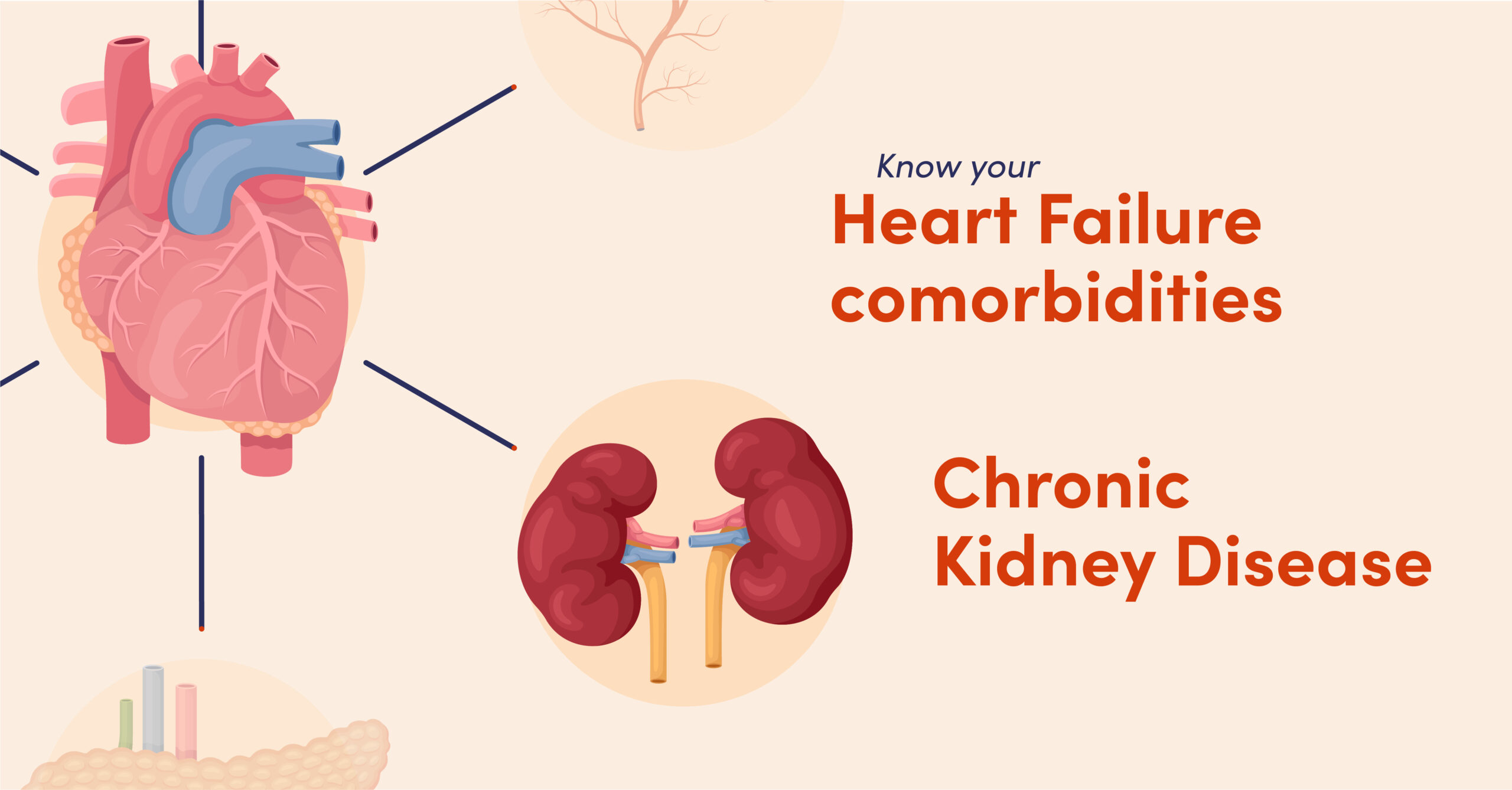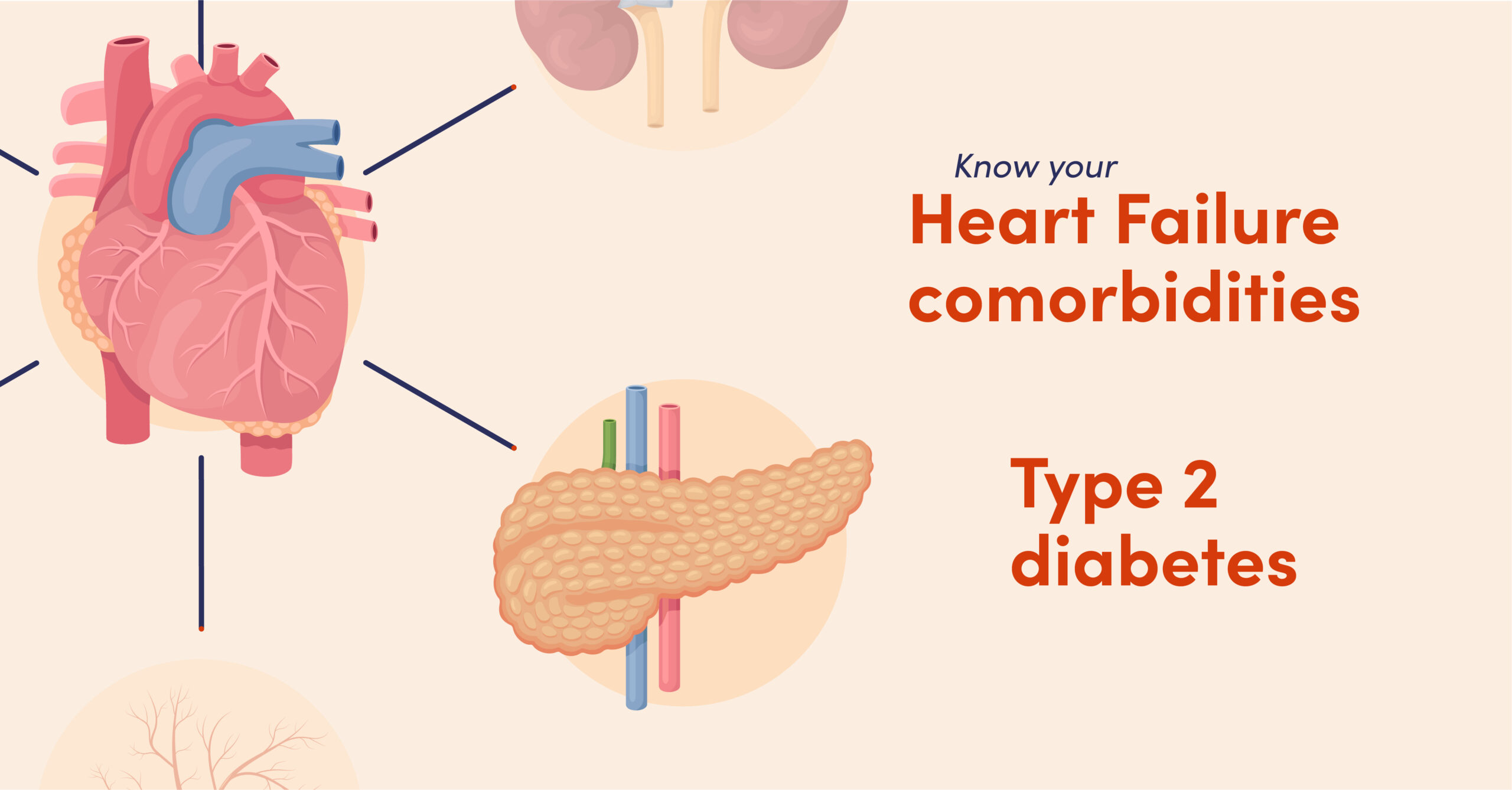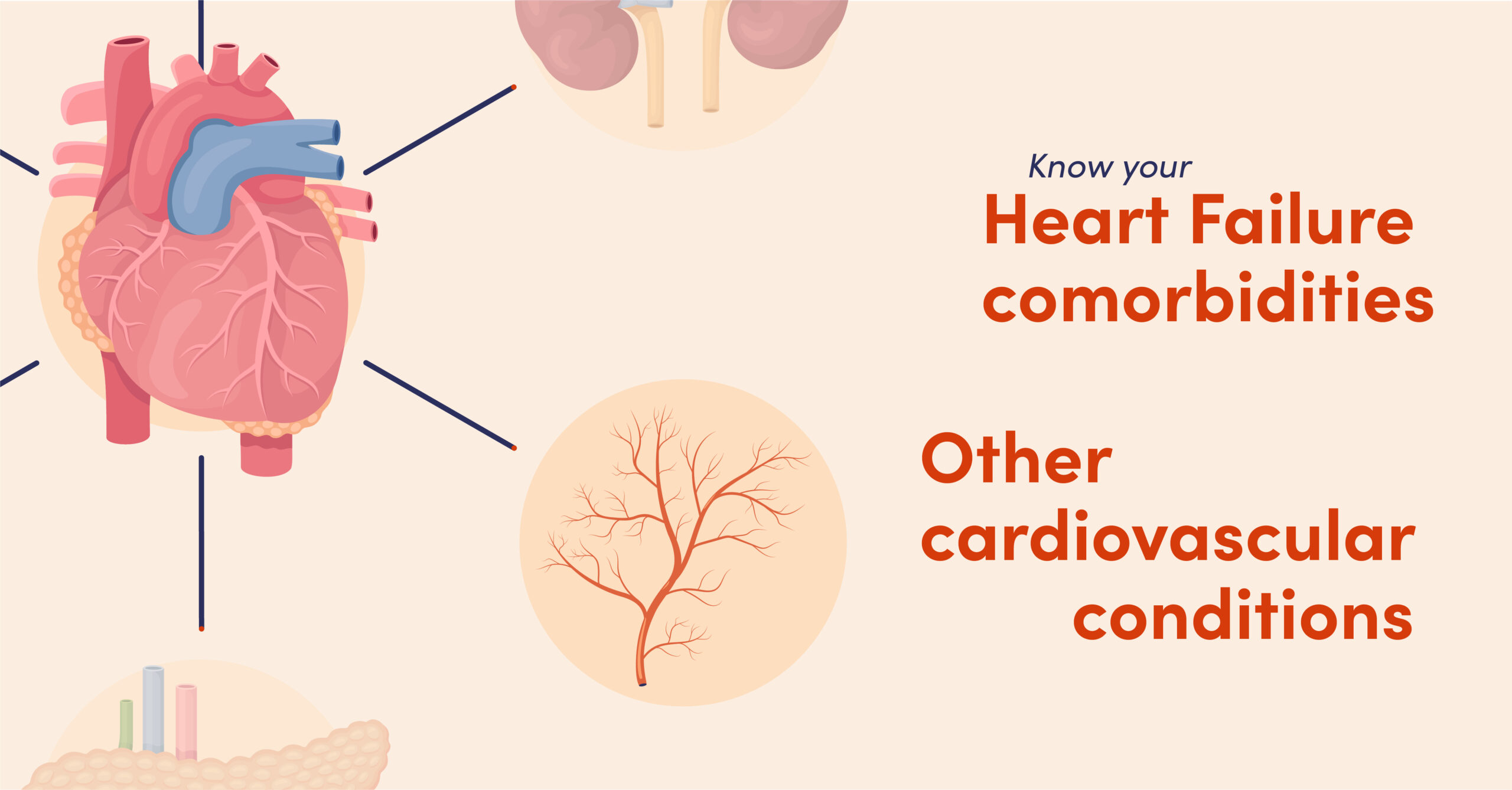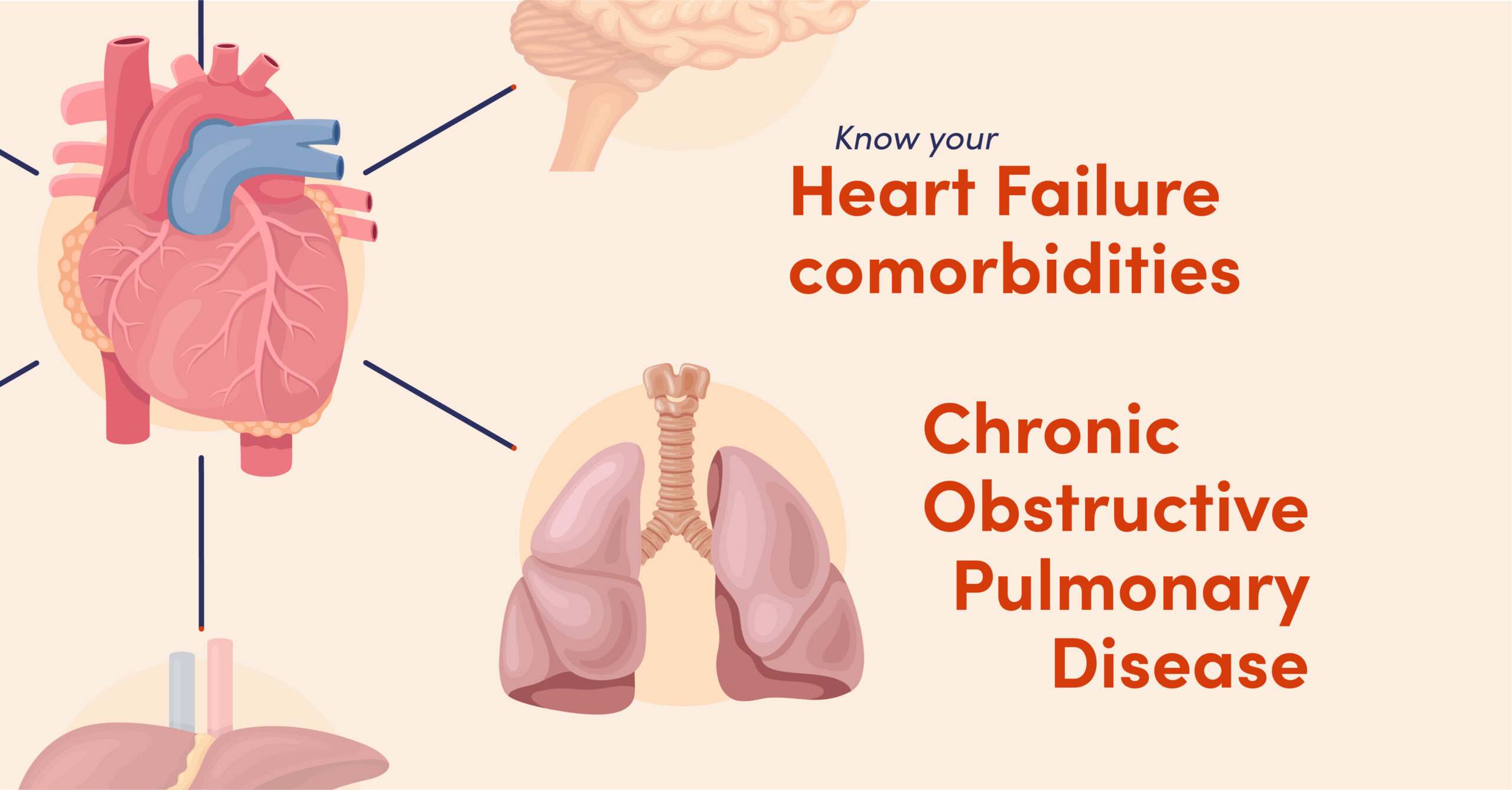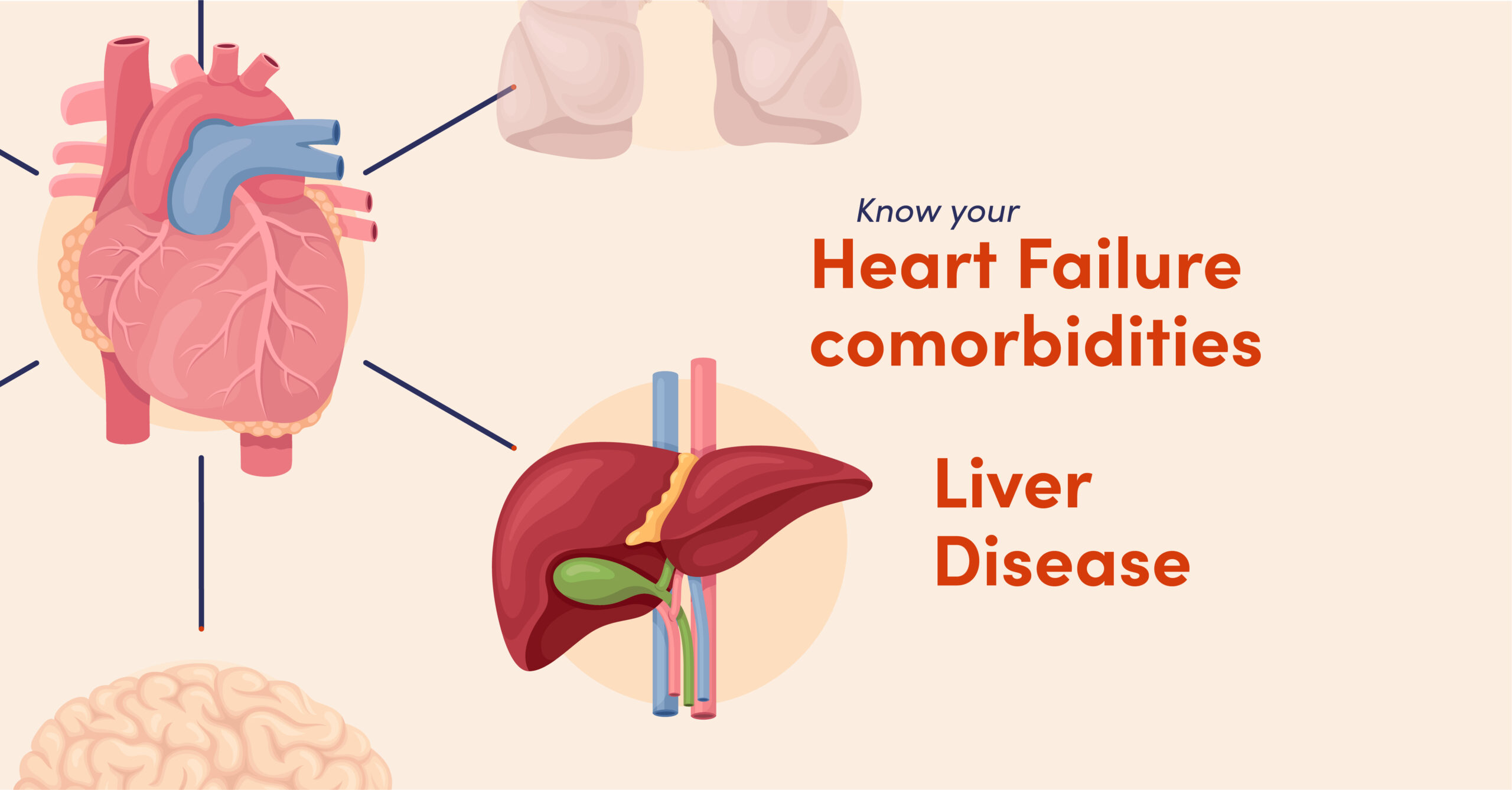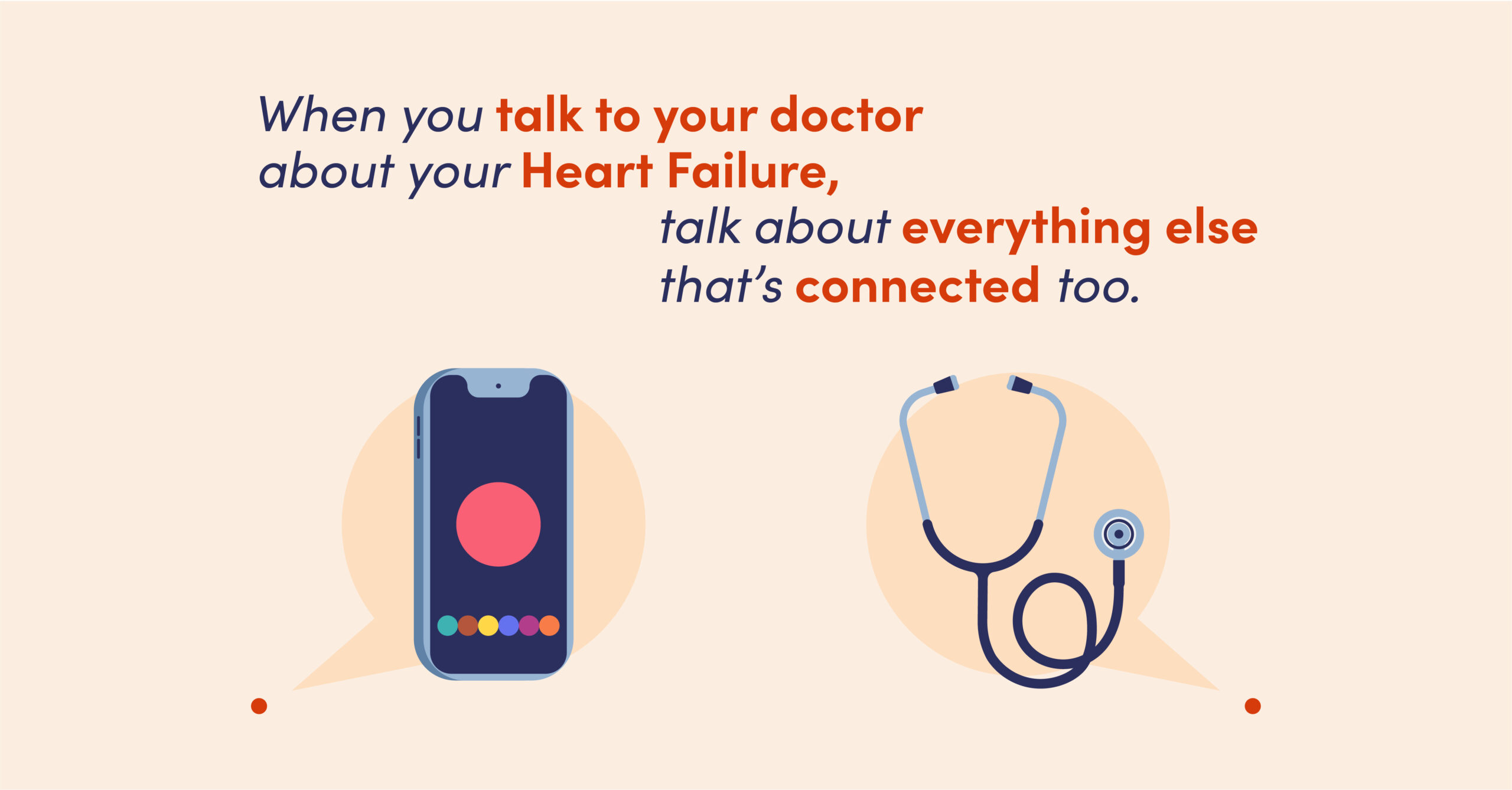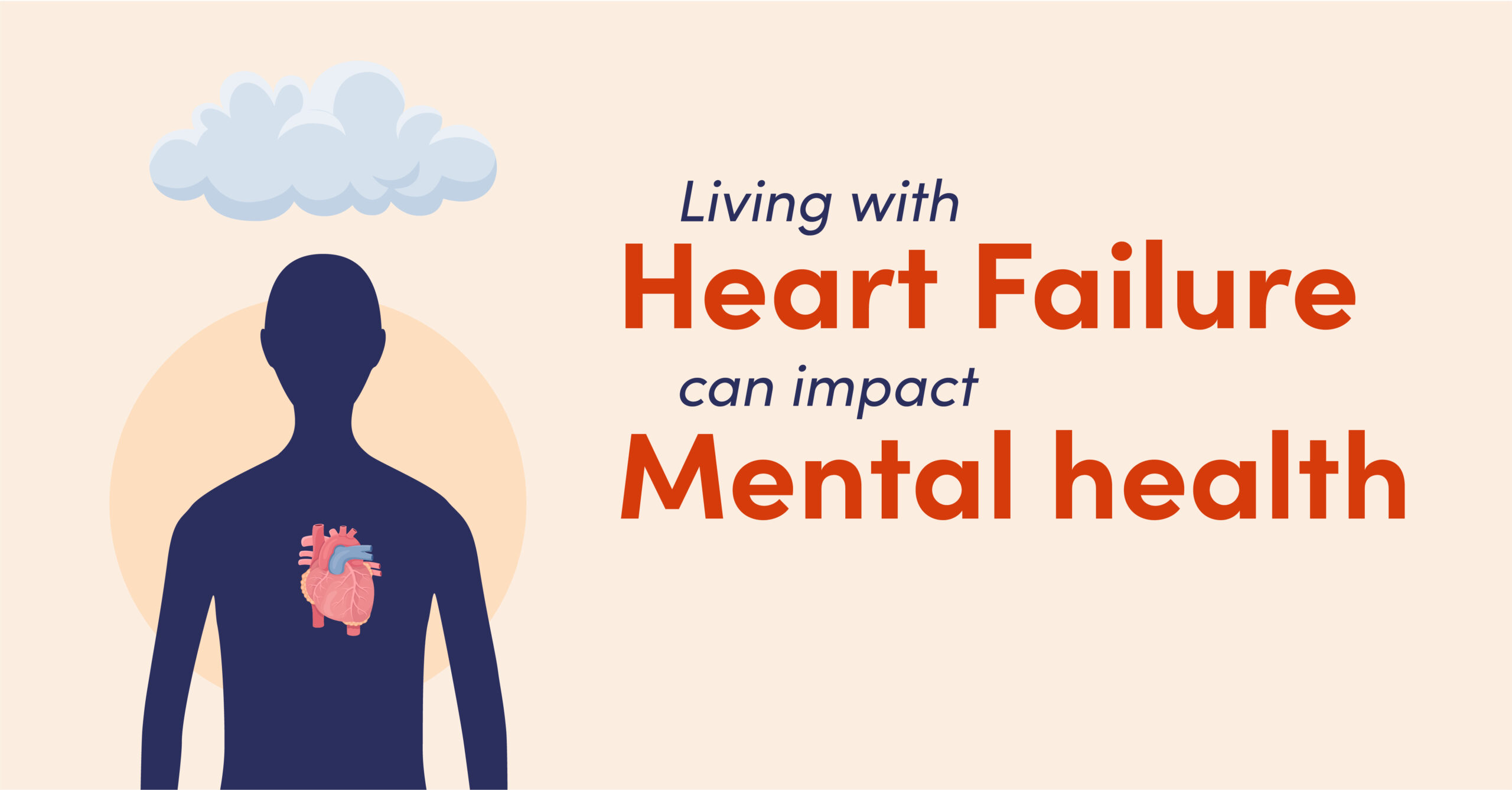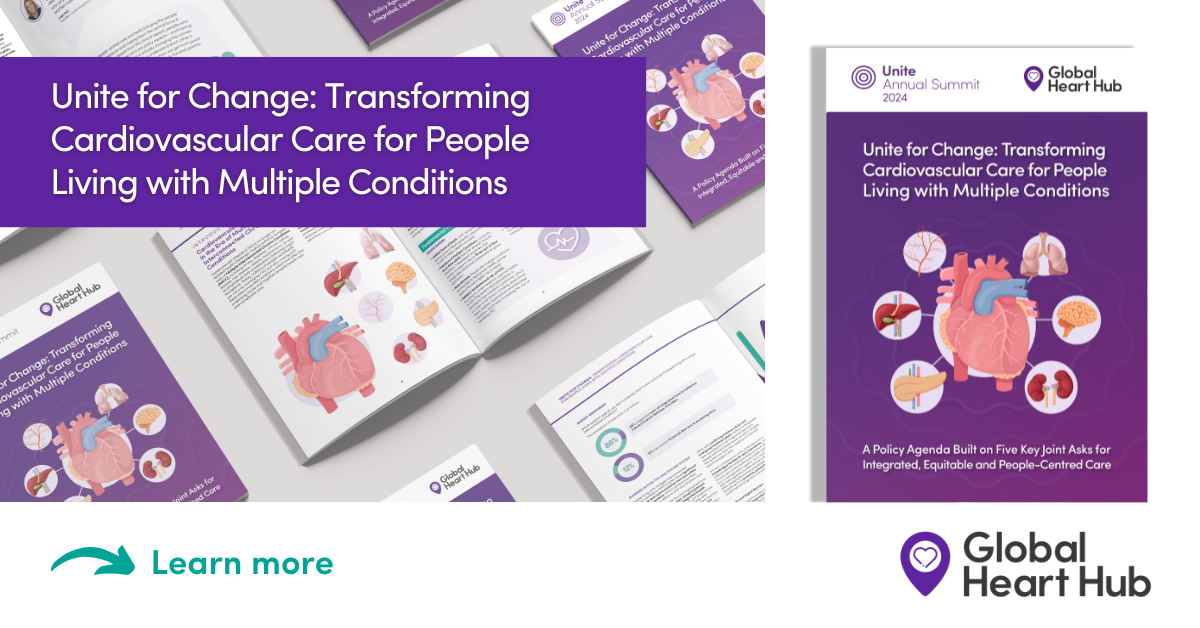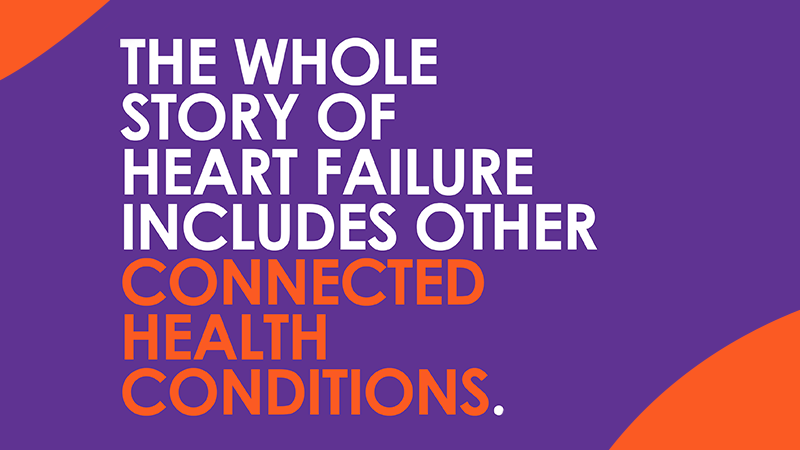Heart Failure Awareness Month | May, 2024
Heart Failure Awareness Month May, 2024
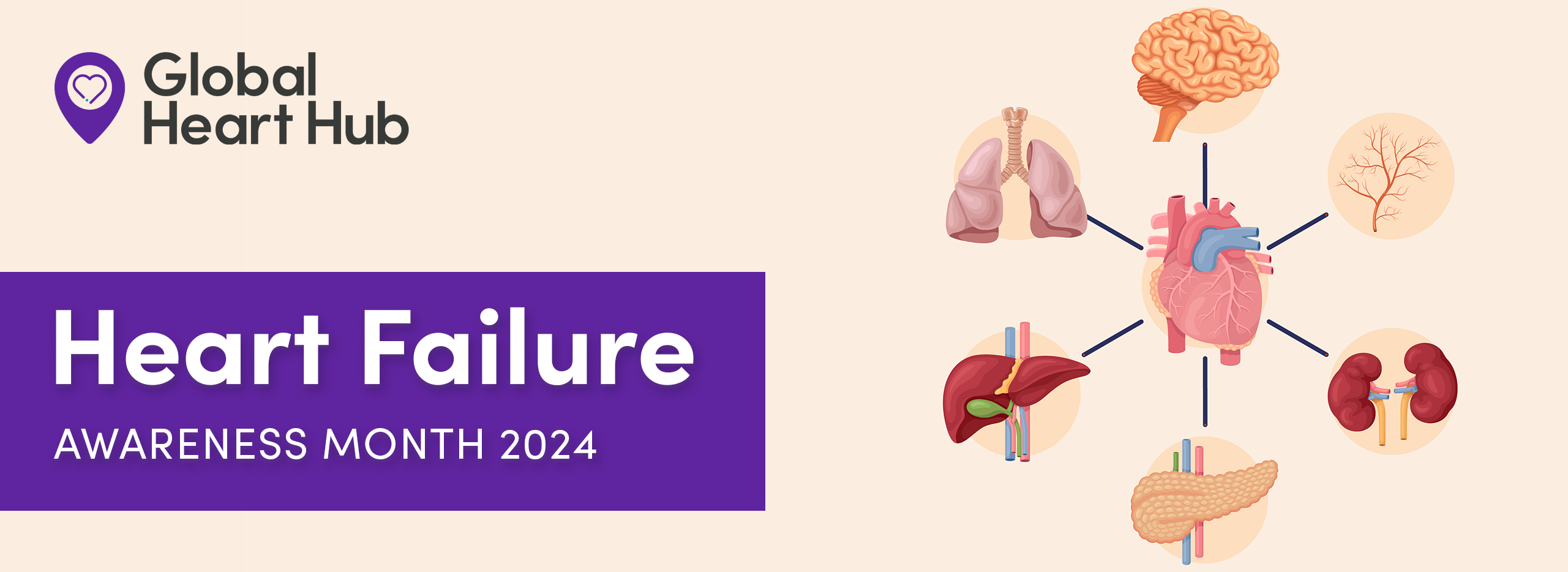
Share This Message!
Heart Failure and its Comorbidities (connected conditions)
If you’re living with heart failure, it’s important to regularly monitor your heart health. But for the best outcomes, it’s important to look beyond your heart.
Hearts are connected to every other part of our body. So heart failure often develops from, or leads to, other health conditions.
People with heart failure often have other conditions at the same time, such as kidney disease, type 2 Diabetes, obesity, high blood pressure, iron deficiency, or an irregular heart rate or rhythm. Mental health conditions like anxiety and depression are also common.
These connected conditions are called comorbidities. They need to be treated too.
It’s important to identify and monitor any comorbidities you might have.
So, when you talk to your doctor about your Heart Failure, be sure to talk about everything else that’s connected, too.
Follow the campaign using #HeartFailureAwareness
Arabic
Brazilian Portuguese
French
Greek
Hebrew
Hungarian
Italian
Latvian
Lithuanian
Mexican Spanish
Polish
Portuguese
Romanian
Spanish
Heart failure patients often suffer from multiple comorbidities (cardiovascular and non-cardiovascular), such as an irregular heart rate or rhythm, high blood pressure, kidney disease, Type 2 diabetes, obesity, iron deficiency, and mental health conditions like anxiety and depression.
Major comorbidities include:
- Coronary Artery Disease, Kidney Disease, Obesity
- Arrhythmia, electrolyte imbalance, thyroid disorder, stroke
- Frailty, Gout, Arthritis
- Depression, Erectile dysfunction
- Anemia, Iron Deficiency
- Cancer, Cardiac Amyloidosis, Malnutrition
- Infection, Lung disease, sleep disorder breathing
- Hyperlipidemia, hypertension, Type 2 Diabetes, Valvular Heart Disease
Living with heart failure comorbidities can take a toll on your physical and mental health, but effective management is crucial for the best outcome and better quality of life.
Early, coordinated treatment is key, so discuss your comorbidities and risks with your healthcare professional.
Comorbidity treatment
Prompt recognition of connected conditions (comorbidities) is of great importance in managing your heart failure1. Heart Failure patients should consult with their doctor for signs of comorbidity development. Comorbidities can complicate the management of heart failure, and treatment for comorbidities in heart failure is still challenging. Advancements in technology can assist with comorbidity management, treating the patient as a whole.
Additional information
About this campaign
Led by the Global Heart Hub’s Heart Failure Patient Council, the 2024 Heart Failure Awareness Campaign focuses on heart failure comorbidities and the importance of managing heart failure and connected conditions. The Heart Failure Patient Council is an alliance of patient organisations from across the globe, working with heart failure patients and their carers. A priority of the council is to raise awareness of heart failure, promote public and healthcare education and advocate for policy action in an insufficiently recognised and increasingly burdensome disease area.
To join the campaign or for more information, please email info@globalhearthub.org.
Get Involved
To join the campaign or for more information, please email info@globalhearthub.org.

